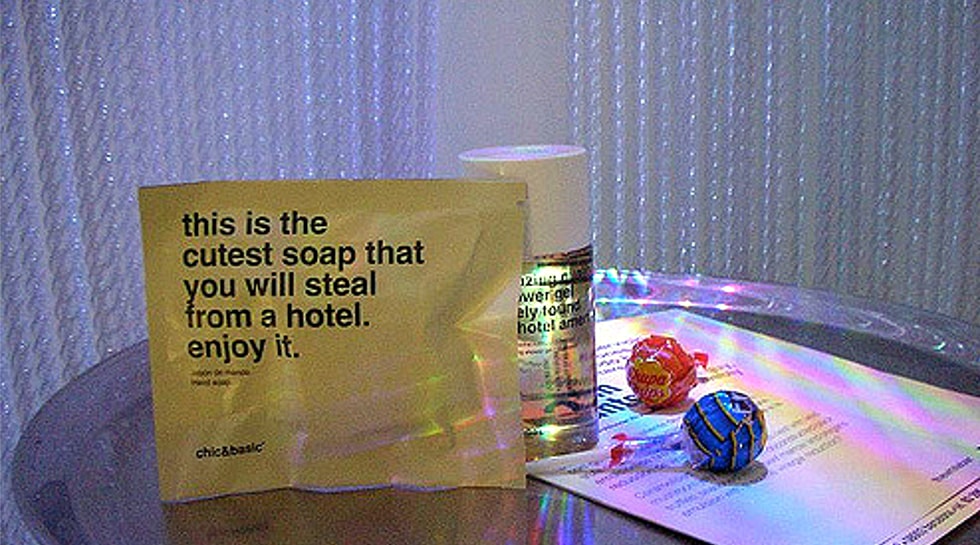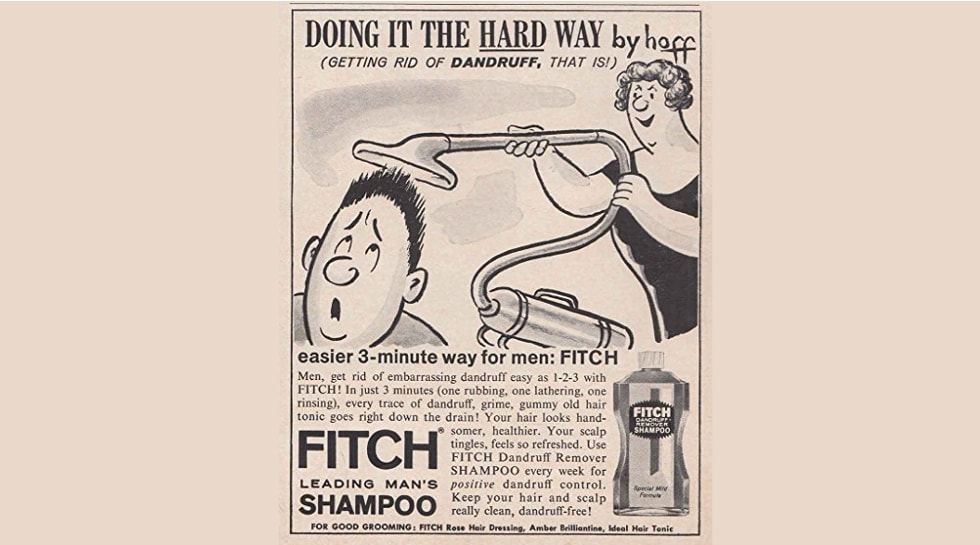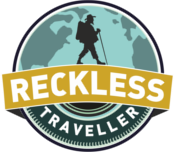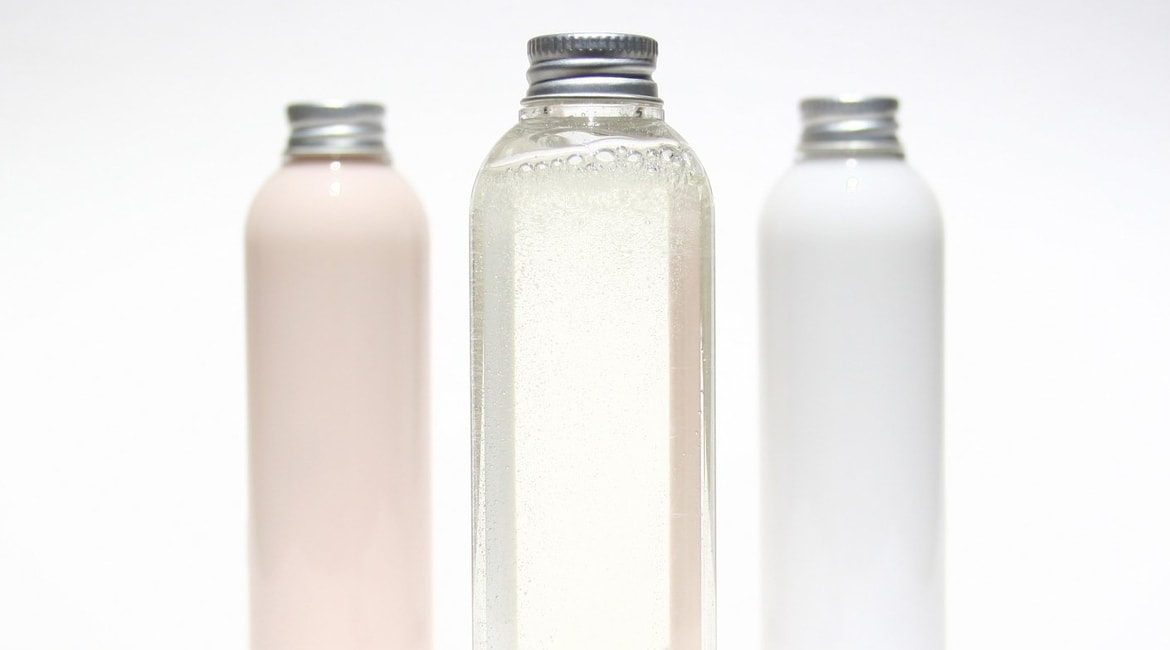Now here’s a practical subject. We’ve all noticed those wee bottles of shampoo in our hotel rooms. There’s soap too, of course, and often conditioner, and a slimey goop called “shower-gel”. They generally give us more of these things than we need; so, I ask, what should we do with the surplus? Should we pocket these bottles, or leave them behind? Should we feel guilty if we scoop them up daily, and pop them into our luggage? Is this stealing?

In this vein, one travel writer remarked, “ Sure, I take ’em. It’s great – I never have to buy my own shampoo.” I’m definitely with him. I happen to know that hotels expect you to do this; in fact, about 75% of guests do so. Besides, we’ve paid for them already, and the manufacturers see the dissemination of their samples as a chance to “show-case” their products in our homes. Pretty smart.
Certain other questions arise. When did this practice of providing soapy amenities begin? Why don’t any two hotels seem to have the same brand of shampoo? There can’t be hundreds of shampoo brands, can there? What happens to the unused half-bottles – and all the empties? If we like the product, where can we get a big bottle? Nothing but questions swirl around the subject of hotel shampoo.
But first, let’s consider – what is shampoo, anyway?
The word itself is very odd. What we call “shampoo” originated in ancient India; it’s from the Hindi word champo, suggesting kneading and soothing – a thought that gives me a bit of a thrill.
Champo was made from a combination of Sapina (soapberries), dried gooseberries and certain fragrant herbs. To their great delight early European traders discovered the use of champo; many were fond of indulging in sessions involving a hot bath, a vigorous massage and a thumping-good champo. The traders naturally imported champo to Europe; our word shampoo came into English usage in the early 19th century. Oddly enough, the French – even their fussy grammarians – call shampoo “shampooing”. It’s official.
Interesting and successful as shampoo is, it seems to me that we’ve been sold a bill of goods. I grew up in a family famed for its cleanliness. Part of my painstaking hygiene was to shampoo once a week with a no-nonsense product called Fitch Dandruff Remover Shampoo.
It came with a special stiff plastic brush – to really scrub the daylights out of one’s scalp. The whole process was cruel and unusual, and left my hair and scalp with a hangover that lasted all week.

But nowadays I don’t feel right unless I shampoo daily; I must have fallen victim to advertising and what one might call the “shampoo-zeitgeist”.
Shampooing is clearly physically addicting: the more you do it, the more oil your scalp produces, and the more you have to shampoo.You might say shampoo is something of a scam.
What’s that I hear? Oh, it’s the manufacturers laughing at us – all the way to the bank.
How about this?
Dr. James Leyden, a Philadelphia dermatologist, paid prison inmates not to shampoo for a month to see if there was any effect on hair condition and dandruff.
There was not. Similarly, in the summer of 1957 I went a whole month without washing my own hair, and it looked fine.
But, to return to the subject of hotel shampoo – what happens to those half-used bottles? In truth, the vast majority gets tossed straight into the garbage. To counter this thoughtless practice, an American company called Clean The World collects, sanitizes and redistributes these products to needy people in over 40 countries. In addition to actually helping people, the company is keeping an enormous amount of waste out of local landfills. Starwood Hotels and Resorts have led the way in this regard.
The largest hotel in the Midwest is Chicago’s Hyatt Regency, with over 2000 rooms. It has partnered with a charity called Bin Donated, which distributes unused amenities to homeless shelters, women’s shelters and public schools. Many other hotels (Hilton and Sheraton) are switching from bottles to dispensers. The bottles DoubleTree and Embassy Suites use are biodegradable.
Shampoo Trivia:
- High-end amenities such as those produced by Hermes of Paris (e.g. Shampooing Eau d’Orange Verte) can add $50 a night to your bill at places like The City Club, a Manhattan Hotel.
- The word Natural on a shampoo bottle has no legal definition, and is basically used to hoodwink consumers. It’s a type of spin called “Green PR”, and it’s everywhere these days. Note that virtually all shampoo has “natural” ingredients mainly because shampoo is fully 90% water. The words “Organic” and “Botanical” also have no legal meaning in the frothy, slippery world of shampoo marketing.
- In 2007 an Australian broadcaster named Richard Glover challenged his listeners – for reasons that escape me – to forgo shampooing for six weeks. Of the hundreds of participants, 86% reported that their hair was either better or the same.
- Some hotels will supply gluten-free or vegan shampoo. That’s only important – are you ready for this? – if you swallow the shampoo. It’s hard to overestimate the gullibility of a certain part of the market.
- A note about the remarkable “No-Poo Movement” may be in order. A significant number of people have turned against commercial shampoo entirely, mostly for environmental reasons. They have come up with a number of creative (some say wacko) alternatives. I’m told you can use a solution of water and baking soda, followed by a rinse of dilute vinegar. Or there’s something you can do involving honey and coconut oil. Or you could perhaps use what traditionally-minded Japanese use – seaweed powder. It’s all there at www.nopoomethod.com. I often use shampoo to hand-wash clothes when I’m on the road. In addition, it’s a good hand-soap, shaving-soap and bubble-bath. It’s also good as a fabric/carpet stain-remover, a kitchen de-greaser and an all-purpose bathroom cleaner. And to think – many people just leave it behind!So, I think that’s all the self-respecting traveller – reckless or otherwise – needs to know about shampoo. You will have gathered that I’m a “shampoo-skeptic”. Whoever said “shampoo is one part sham and one part poo” may not have been strictly correct, but I sure believe he had the right idea.






Facebook Comments